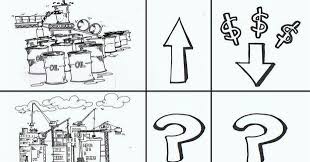IN my previous article, I shared the impact of high credit card interest rate that many have overlooked and hence, overspent. Interestingly, there are loans outside the confines of financial institutions that affect the mass. These loans are largely unregulated and therefore, more painful in terms of financial burden and emotional stress when the loan and interest cannot be repaid on time.
Every now and then, I will receive text messages from unknown contacts offering loans at “attractive” rates. A check with my close associates indicates that I am not alone in receiving such messages. These messages and those stickers offering loans on the streets share the same traits, i.e. easy loan with no pre-qualification required. Example – “Borrow RM1,000, and return RM200 monthly for six months”.
At first glance, it seems like the interest rate for the loan is 20%. However, as the repayment period is only six months, it is actually 40% per annum! This rate is 11 times higher compared with the average fixed deposit rate of 3.5% per annum in the market.
These loans are offered mostly by unlicensed moneylenders, otherwise commonly known as “loan sharks”. According to a news article published in The Star recently, the interest they charged are mostly counted based on monthly or even daily rest basis.
It is learnt from the article that people usually borrow between RM1,000 and RM10,000 at an interest rate of 0.5% to 1% per day. This works up to about 15% to 30% monthly. When the loan is defaulted, another 5% is added as a late repayment penalty.
It therefore becomes evident that the borrowers of such loans face immense problem repaying their loans. They will generally end up borrowing from other moneylender to cover their existing loan which will lead them to more debts. Imagine the emotional stress from harassment when they are unable to serve the interest.
Sadly, this loan with its easy application process and low requirement attracts people who are financially desperate, regardless of professional or income group.
Bank Negara has announced that Malaysia’s household debt-to-gross domestic product (GDP) ratio has increased from 86.8% to 89.1% as of 2015. We have one of the highest household debts in the region without including the unregulated loans from these “moneylenders”. I wonder how this “shadow banking” or “off balance sheet transaction” impact our people and economy.
To protect the rakyat, the government should look at strengthening the enforcement of eliminating illegal money lending.
As the saying goes “where there is demand, there is supply”. Hence the key is to first understand why people resort to borrowing from these “moneylenders”. It is important to strengthen financial education and awareness of public through various channels.
People, especially children, should be taught to borrow for the right things from young, and understand the difference between good debt and bad debt. More importantly, people should learn to ask themselves if there is a real need to borrow. Borrowing money to buy assets that depreciate over a short period of time, such as cars and luxury items is deemed as “bad debt”. This is in stark contrast to “good debt”, such as buying a home or asset that has the possibility of appreciating in the long term, and at the same time, paying a much lower interest rate compared with bad debts.
For people with a genuine need for financing, there are many other options such as borrowing from the banks and legal money lenders, or even to the explore “fintech”, a financial technology which offers more efficient and cheaper financial services through the use of technology. Again, it is important to ensure these channels are legal and well regulated.
Borrowing from unregulated moneylenders is like jumping from the frying pan into the fire. It is important to have wise financial planning in the first place and always seek advice before doing anything financially. One may get advice from government agencies, such as Agensi Kaunseling dan Pengurusan Kredit, when faced with financial challenges.

By Datuk Alan Tong, who has over 50 years of experience in property development. He was the World President of FIABCI International for 2005/2006 and awarded the Property Man of the Year 2010 at FIABCI Malaysia Property Award. He is also the group chairman of Bukit Kiara Properties. For feedback, please email feedback@fiabci-asiapacific.com.
Related:
Family photographs of debtor plastered near school
Losses from financial scandals mounting: Musa | theSundaily
Stop taking it out on the old and the young - Malaysian Chinese ...
Getting a grip of the loan shark problems
Related posts:
May 11, 2015 ... Overall, is our nation having more good debts or bad debts? ... 7.7%, securities at
6.5%, followed by credit cards and other items at 3.9% respectively. ... FIABCI
Asia-Pacific regional secretariat chairman Datuk Alan Tong has ...
Jun 13, 2015 ... Car, personal and credit card loans, which have higher interest rates repayment
... value in the future, and are considered as “unhealthy debt” or “bad debt”. ...
Now is a good time to relook into our debt portfolio and the interest rates ...
FIABCI Asia-Pacific Regional secretariat chairman Datuk Alan Tong has ...
 Dec 12, 2015 ... Yes, our homes may not be cheap but our cars are more expensive in
comparison. ... A median-priced house in US and UK can buy 12 and 16 Honda
... FIABCI Asia Pacific chairman Datuk Alan Tong has over 50 years of ...
Dec 12, 2015 ... Yes, our homes may not be cheap but our cars are more expensive in
comparison. ... A median-priced house in US and UK can buy 12 and 16 Honda
... FIABCI Asia Pacific chairman Datuk Alan Tong has over 50 years of ...
May 16, 2016 ... Datuk Alan Tong was the world president of FIABCI International for 2005/2006
and Property Man of the Year 2010 at FIABCI Malaysia.

Mar 12, 2016 ... Datuk Alan Tong has over 50 years of experience in property development. He is
the group chairman of Bukit Kiara Properties. For feedback

Jun 11, 2016 ... Datuk Alan Tong has over 50 years of experience in property development. He
was the World President of FIABCI International for 2005/2006 ...

Dec 30, 2015 ... Make the right money moves: investing in a property is still best. THE Christmas
and New ... Is having a car still a symbol of freedom? Posted by ...
THE Christmas and New Year celebrations
offer us good reasons to indulge in extra spending — shopping for
presents, overseas trips, part...


May 21, 2016 ... A BUZZWORD growing in popularity in the financial world today is “fintech”, short
for financial technology, which in a nutshell refers to the use...
Apr 16, 2016 ... The reason why traditional bank shares are dropping like a stone is that mobile
phone companies and financial technology (FinTech) platforms ...



No comments:
Post a Comment